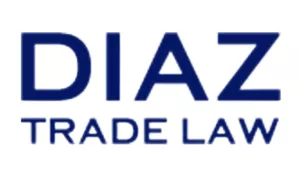Incoterms are a set of 11 internationally recognized rules that define the responsibilities of sellers and buyers for the sale of goods in international and domestic transactions. They define who is responsible for what during each step of a transaction, assisting buyers and sellers in determining the risk of loss, and the party responsible for costs relating to the transportation of goods. This article provides practitioners an overview of Incoterms 2020 updates, practitioner tips, and valuable resources.
What are Incoterms?
International commercial terms, globally referred to as Incoterms®, are published by the International Chamber of Commerce (ICC) as a commitment to facilitate international trade and promote open markets. In response to an ever- evolving global trade landscape, and to provide a common language for traders, the ICC developed the first global system of rules to govern trade.
Incoterms are not law, and instead are designed to prevent confusion between global traders by clarifying contract obligations of buyers and sellers. The first version was published in 1936 and is updated periodically to conform to evolving trade practices, with its most recent update in 2020. Updates are made by a handpicked group of experts from various nationalities chosen for their contribution to international commercial law.
Practice Tip: Contracts should specify which version parties are using (e.g., Incoterms 2020).
What Do Incoterms Cover?
Each Incoterms® rule clarifies the tasks, costs, and risks the buyers and sellers is responsible for during the transaction. A full set of terms are provided under each Incoterm rule and parties to a sales contract do not have to adopt the terms in their entirety. The parties may incorporate specific provisions from the relevant Incoterms as they are voluntary and a source of guidance. Incoterms focus on the various practical elements of a sale such as:
- Primary obligations of the seller and buyer
- Clarify responsibilities of parties to a sales transaction
- Time of delivery
- The transfer of risk
- Insurance
- Export and import clearance
- Division of other costs pertaining to the delivery of goods Incoterms do not address all the conditions of a sale, such as:
- Transfer of title
- Identifying the goods being sold
- Listing the contract price
- Payment method
- Referencing the method or timing of payment negotiated between the seller or buyer
- Specifying which documents must be provided by the seller to the buyer to facilitate the customs clearance process at the buyer's country
- Addressing liability for the failure to provide the goods in conformity with the contract of sale, delayed delivery, or dispute resolution mechanisms
- Addressing force majeure; termination; insolvency
- Compliance and trade restrictions
- Applicable law and jurisdiction
Incoterms® are incorporated into contracts by express (written) reference whether in special or standard contract terms.
Practice Tips: Prior to entering an agreement for the purchase of goods, verify all costs of delivery are accounted for through the transactions and that the supplier has the capacity to deliver
When incorporating the specific Incoterms into an agreement, such as a contract or Terms and Condition, specifically state which version of Incoterms is being relied on, such a provision may state, "all commercial terms are defined under Incoterms® 2020," since previous versions continue to be in effect
Most Recent Update & its Relevance
Incoterms® 2020 became effective on Jan. 1, 2020. Contracts using any 2010 and earlier version are valid if the incoterm and version used are agreed upon by all parties to the transaction and are correctly identified stating the version referenced.
This ninth edition has undergone changes in style and substance from Incoterms® 2010. The revisions address issues that were not prevalent in 2010. While Incoterms are drafted in English, they are translated into 29 different languages. The introduction of the 2020 edition explains how to choose the most appropriate Incoterms rule for a sale contract.
The revision aims to respond to changes in the global market to continue to be relevant and useful to trade. The main focal points are:
- The growth of the global economy and greater access to markets worldwide
- Increasing attention to security in the transportation of goods
- The need for flexibility when considering insurance coverage, depending on the type of goods and transport
Click here to continue reading . . .
Originally published by Bloomberg Law.
The content of this article is intended to provide a general guide to the subject matter. Specialist advice should be sought about your specific circumstances.


